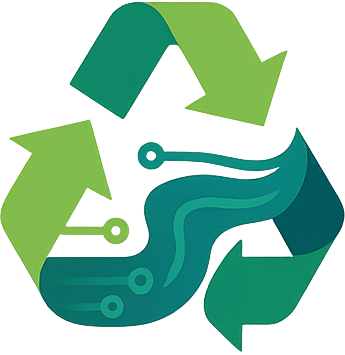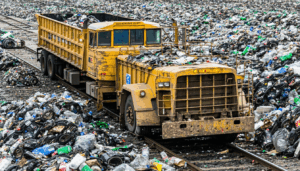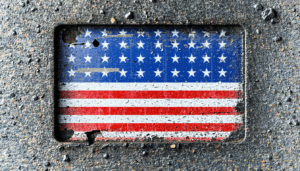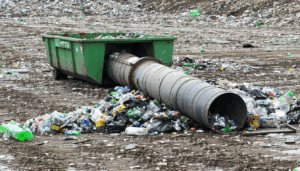In the United States, the safe disposal of pharmaceutical waste has emerged as a pressing environmental and public health concern. With millions of prescriptions filled annually, unused or expired medications often end up in landfills or waterways, posing risks of contamination and misuse. This article explores the latest developments, regulatory updates, and innovative solutions addressing this critical issue. From new guidelines by federal agencies to community-driven initiatives, we delve into how stakeholders are tackling the challenges of pharmaceutical waste management and what it means for the future of public safety and environmental protection.
The Growing Problem of Pharmaceutical Waste
The scale of pharmaceutical waste in the US is staggering. According to the Environmental Protection Agency (EPA), Americans generate over 200 million pounds of unused medications each year. Improper disposal—such as flushing drugs down the toilet or tossing them in household trash—can lead to water contamination and accidental exposure, especially to children or pets. Studies have detected trace amounts of pharmaceuticals in drinking water supplies, raising alarms about long-term ecological and health impacts.
This issue is compounded by the opioid crisis, where leftover painkillers contribute to potential misuse. The urgency to address disposal of pharmaceutical waste has never been clearer, as both regulators and communities seek sustainable solutions.
Recent Regulatory Updates on Disposal Practices
In response to these challenges, federal and state authorities have introduced stricter guidelines. In 2023, the Drug Enforcement Administration (DEA) expanded its National Prescription Drug Take Back Day, held biannually, collecting over 600,000 pounds of unused medications in April alone. This initiative provides safe drop-off locations at pharmacies and police stations nationwide, reducing the risk of improper disposal.
Additionally, the EPA has updated its Resource Conservation and Recovery Act (RCRA) regulations to better manage hazardous pharmaceutical waste from healthcare facilities. These rules aim to prevent dangerous substances from entering the environment while ensuring compliance among hospitals and pharmacies. According to Dr. Emily Carter, an environmental policy expert at Johns Hopkins University, “These regulatory changes are a vital step toward minimizing the footprint of pharmaceutical waste, but enforcement remains a challenge.”
Impact on Stakeholders: Health and Environment
The implications of improper disposal of pharmaceutical waste affect a wide range of stakeholders. For healthcare providers, managing expired drugs under tightened regulations requires additional resources and training. Pharmacies, often on the front lines of take-back programs, face logistical hurdles in handling returned medications safely.
For the public, the risks are twofold: environmental harm from contaminated water sources and personal safety concerns from unsecured drugs. Communities near landfills or waterways are particularly vulnerable to pollution. Meanwhile, wildlife suffers as aquatic species encounter trace pharmaceuticals, disrupting ecosystems. Addressing these impacts requires collaboration across sectors, from government agencies to individual households.
Innovative Solutions Emerging Nationwide
Amid these challenges, innovative approaches are gaining traction. Several states, including California and Washington, have implemented drug take-back laws that mandate manufacturers to fund disposal programs. These “producer responsibility” initiatives shift some of the burden from consumers to pharmaceutical companies.
Technology also plays a role. Companies like DisposeRx offer at-home deactivation kits that render medications unusable before disposal. Additionally, some pharmacies now provide mail-back envelopes for safe drug return. “Innovations like these empower individuals to act responsibly,” says Mark Thompson, a public health advocate with the National Association of Boards of Pharmacy. Such tools aim to bridge gaps in access to disposal sites, especially in rural areas.
Future Outlook: Challenges and Opportunities
Looking ahead, the issue of pharmaceutical waste disposal in the US remains complex. While regulatory frameworks and community programs are evolving, gaps in public awareness persist. Many Americans remain unaware of proper disposal methods, highlighting the need for widespread education campaigns.
There’s also debate over funding—should taxpayers or industry bear the cost of disposal programs? Both sides have valid arguments: taxpayers want accountability from drug makers, while companies argue that costs could stifle innovation. Balancing these perspectives will be key to sustainable progress. Ultimately, experts predict that a combination of policy, technology, and education will shape the future of this critical issue.
Conclusion
The disposal of pharmaceutical waste in the US stands at a crossroads, with significant strides made through regulation, innovation, and community action. From DEA take-back events to state-led initiatives, efforts are underway to curb environmental damage and protect public health. Yet challenges like funding disputes and awareness gaps remain. As stakeholders continue to collaborate, the path forward lies in shared responsibility—ensuring that every pill discarded is handled with care for the sake of our planet and future generations.
Frequently Asked Questions (FAQs)
-
What is pharmaceutical waste?
Pharmaceutical waste includes unused, expired, or unwanted medications that can pose risks if not disposed of properly. -
How can I safely dispose of medications in the US?
Use DEA-authorized take-back locations at pharmacies or police stations, participate in National Prescription Drug Take Back Day events, or use FDA-approved mail-back programs. -
Why is improper disposal of drugs harmful?
It can lead to water contamination, accidental poisoning, drug misuse, and harm to wildlife due to environmental exposure. -
Are there penalties for improper disposal?
Yes, under EPA regulations like RCRA, businesses can face fines for mishandling hazardous waste, though penalties for individuals are less common. -
What role do pharmacies play in disposal?
Many pharmacies serve as collection sites for unused drugs and provide information on safe disposal methods to customers.





